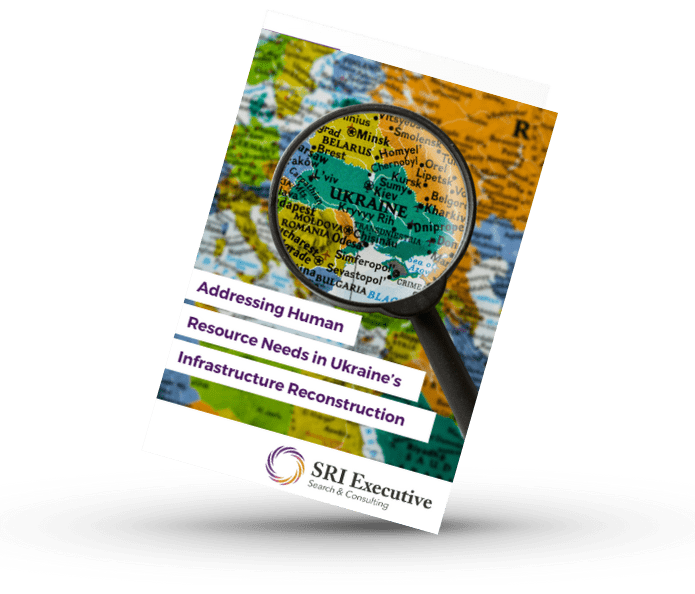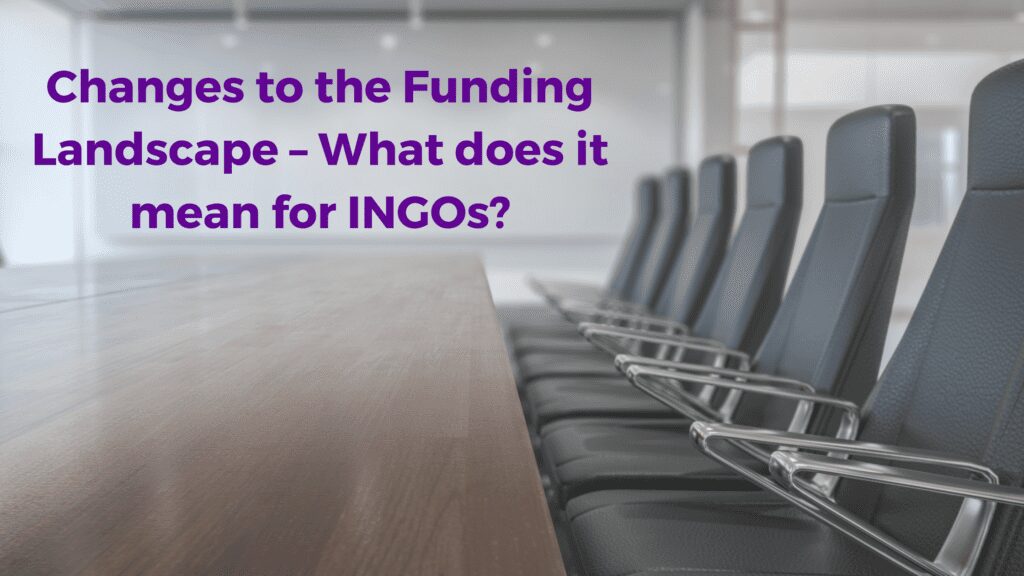About
Role purpose
Directors are responsible for managing a division or office. The main focus of Director positions is strategic leadership, innovation and management. Most typically as a member of a departmental management team, they are responsible for managing and supervising the delivery of a division's programme of work within an allocated budget.
In particular, the Regional Director manages and co-ordinates the delivery of the Regional portfolio and priorities and is responsible for its human, financial and material IFAD's resources.
Major Duties and Responsibilities
- VISION AND STRATEGY: Directors at IFAD are responsible for developing and promoting a strategic vision that translates the organization's corporate and departmental mandates, strategies, goals, and objectives into a divisional programme of work. They ensure that the division's activities are integrated with the overall Fund mandates and strategies and participate in the design of IFAD's strategic approaches. Directors set and communicate clear objectives and are accountable for the division being seen as a credible and trusted partner in managing for results and as an innovator in its field.
- POLICY DEVELOPMENT AND ADVICE: Directors provide leadership in the development and interpretation of major policies, regulations and rules, and systems that govern the work of a division and ensure they support divisional goals and objectives within the overall Fund mandates and strategies. Directors also serve as a trusted business/programme advisor with a significant role in authoritative policy advice within the Fund at the senior management level as well as in policy dialogue in their representational activities.
- PROGRAMME MANAGEMENT: Directors provide leadership in all phases of the division's medium term planning and management, including operational requirements such as:
- Establishing annual work plans
- Ensuring regular programme assessment
- Identifying opportunities for innovation and implementation of best practices generated within the Fund as well as in peer organizations, both private and public
- Reviewing and innovating core processes of the division in order to achieve better efficiency and effectiveness, as well as financial sustainability of operations
- Enhancing synergy among divisional staff and holding staff accountable for results
- Ensuring the preparation of all divisional publications, reports and governing bodies documents.
Key Performance Indicators
- Directors establish IFAD's priorities and provide leadership to division-level programme and operational management activities, ensuring a results-based approach to meeting assigned goals and objectives.
- Leadership activities include the optimal utilization of human, financial, technology, and material resources for greater efficiency and effectiveness.
Working Relationships
- Directors are responsible for building and maintaining strong working relationships both within and outside of IFAD. Internally, Directors provide strategic advice to senior management and collaborate with other divisions to ensure effective coordination of programme planning and activities.
- Externally, Directors develop strategic partnerships with a range of institutions, including borrowers, development agencies, UN agencies, and non-governmental organizations, for the purpose of programme cooperation, knowledge sharing, policy dialogue, and resource mobilization. Directors also represents IFAD in official committees, meetings, and conferences, and build organizational networks with peers in major private, public, and international financial institutions.
- DCO Directors have additional responsibility for in country offices and ensuring a one team approach to operations across divisions.
Profile
Organizational Competencies
- Building relationships and partnerships – Builds and maintains strategic partnerships internally and externally.
- Communicating and negotiating – Acquires & uses a wide range of communication styles & skills.
- Demonstrating leadership – Leads by example; initiates and supports change.
- Focusing on clients – Contributes to a client-focused culture.
- Learning, sharing knowledge and innovating – Challenges, innovates & contributes to learning culture.
- Managing performance and developing staff – Manages wider teams with greater impact on others and on the organization.
- Managing time, resources and information – Coordinates wider use of time, information and/or resources.
- Problem-solving and decision-making – Solves complex problems and makes decisions that have wider corporate impact.
- Strategic thinking and organizational development – Staff in management and/or strategic leadership roles.
- Team working – Fosters a cohesive team environment.
Education
- Advanced university degree (Master or equivalent) – Development Economics, Political Science, International Development, Agriculture and Horticulture.
- Areas – Rural development, Agriculture, Development finance, Public Policy or other job related fields, with a preference for economics.
- Degree must be an accredited institution listed on https://www.whed.net/
Experience
- At least twelve (12) years of progressively responsible professional experience in technically related area of operations in a multilateral organization or national organization providing support on a global scope including experience in project/programme design and implementation.
- Five (5) years in a multi-cultural organization or national organization providing support on a global scope.
- Demonstrated experience and ability at leading and managing multicultural teams is required.
- Knowledge and working experience in the Middle East, North Africa, Eastern Europe and Central Asia are essential.
Languages
- English (4 – Excellent).
- Either Arabic and/or French (4 – Excellent) is required, with working knowledge (3 – Good) of the other considered highly advantageous.
Skills
- Advocacy: Ability to leverage IFAD knowledge and/or communication materials to maintain and promote constructive dialogue around IFAD`s vision and strategic priorities to external factors.
- Policy dialogue: Know-how in the effective dialogue with ministries of finance, explaining lending terms and providing advice for debt management.
- Risk management (e.g. reputational): Identification and assessment of potential liabilities and risks in IFAD's activities, particularly vis-à-vis third parties; ability to handle risks via contingency and mitigation strategies.
- Strategy implementation: Ability to lead and manage the development and implementation of medium to longer-term strategies for IFAD / for respective divisions.
- Planning: Know-how in the planning of human, financial and material management of IFAD resources.
- Resources management: Know-how in the management of human, financial and material management of IFAD resources.
- Change management: Role modelling, anticipation of key risks & conflicts and formulation of contingency plans/solutions, action-oriented.
- Confidentiality & Discretion: Establishes self and division as trusted advisor to internal stakeholders by maintaining high level of discretion and confidentiality in assignments; demonstrates sound judgement when dealing with sensitive and/or confidential matters; drives good governance and is a "Culture Carrier" demonstrating IFAD institutional conscience through the work.
- Corporate approach: Ability to bring in corporate vision and priorities into one's area of work (e.g. budgeting going beyond simple budgetary considerations, taking into account strategic priorities).
- Leadership: Group thought leader, sought out by others and providing mentorship and effective guidance to others; Ability to build trust, inside and outside the organization by acting as a role model for IFAD's core values and competencies, and to provide a clear sense of direction, mentorship and effective guidance to the team, strategizing the IFAD's goals, giving the vision, empowering the team and ensuring a positive environment for all.
- Political acumen: Ability to conduct sound political analysis and understand complex environments, providing options and advice.
- Specialized communication skills: Ability to negotiate on behalf of IFAD and drive for creative and pragmatic solutions in complex negotiations with key partners, both public and private sector
Other Information
IFAD staff members are international civil servants subject to the authority of the President of IFAD. In accordance with IFAD's Human Resources Policy, the President can decide to assign them to any of the activities of the Fund. All International Professional staff members are required to be geographically mobile and positions in the professional category are subject to changes in location at any time in line with strategic priorities and reform initiatives in IFAD.
Terms of Appointment
This is a D-1 position.
Role Location
Rome, Italy.
How to Apply
To apply for this position, please ensure you complete the Application Form provided below by 30 January 2025 (23:59 hrs, GMT +1). It is essential that you submit your CV in English, specifically in Microsoft Word format (.doc/.docx), not exceeding 10MB.
Applications in other languages or formats will not be considered.
Rest assured, all information will be handled with the utmost confidentiality.
SRI Executive is exclusively retained by IFAD to undertake this assignment.








